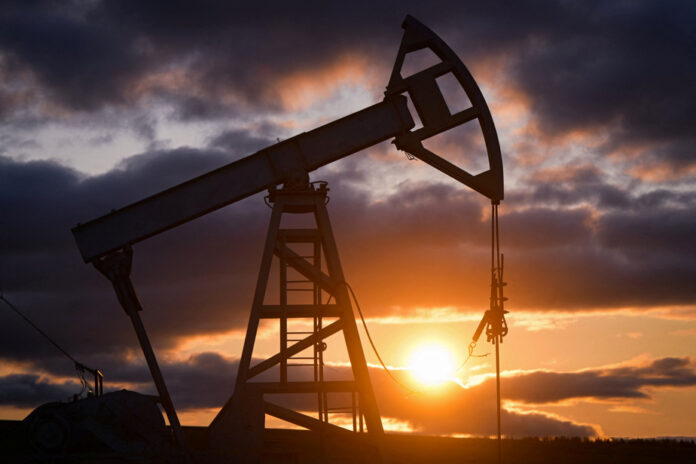(New York) Oil prices plunged on Thursday after another burst of interest rate hikes in the UK, Norway, Turkey and Switzerland, reigniting fears of a global recession that could depress demand for gold black.
A barrel of Brent from the North Sea, for August delivery, lost 3.86% to 74.14 dollars.
Its US equivalent, a barrel of West Texas Intermediate (WTI) for same month delivery, fell 4.16% to $69.51.
Increases in key rates by the major central banks have consequences for demand for oil, as they weigh on economies by increasing the cost of credit for households and businesses.
“It appears that energy investors are focused on aggressive messaging from the Fed and other central banks” to fight inflation rather than the “relatively upbeat EIA Crude Oil Report” outlining the weekly US trading stocks, Oanda analyst Edward Moya told AFP.
US crude oil inventories fell by 3.8 million barrels last week in the United States, surprising analysts who expected a small increase, according to figures released Thursday by the United States Agency. Energy Information (EIA). These favorable data should have supported prices.
“Despite an unexpected drop in US inventories […] growing fears that energy demand could collapse – given the Bank of England’s surprise fifty basis point rate hike and continued rhetoric hawkish Fed – drove WTI below $70,” said Bart Melek of TD Securities.
The analyst also cites fears “of a looming US recession, weak Chinese economic performance and positive Iranian shipment data” as playing “an important role in fund managers’ move away from the market.” oil market”.
The Bank of England on Thursday raised rates for the 13th time in a row by 0.5 points, taking them to 5%. The Bank of Norway has gone into overdrive to try to curb inflation, also raising its key rate by 0.5 points on Thursday, to 3.75%.
Turkey’s central bank meanwhile raised its key interest rate to 15% on Thursday in a major reversal at its first monetary policy meeting since President Erdogan’s re-election.
Finally, the Swiss National Bank (SNB) also sided with the central banks on Thursday, which continue to raise their key rates, bringing theirs to 1.75%, or 0.25 points more.
With this new burst of rate hikes, “recession fears are growing,” said Tamas Varga of PVM Energy, interviewed by AFP.















